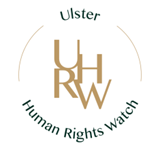Ulster Human Rights Watch (UHRW) is calling for a radical new approach to dealing with the legacy of the past, with victims of terrorism placed front and centre in a new strategy. This message was delivered by UHRW in a meeting with Ian Paisley MP.
The Lurgan-based organisation is also proposing the setting up of a Committee for Peace, Freedom and Reconciliation. This should be created to combat terrorism and radicalisation and promote peace, freedom and reconciliation.
UHRW has produced a detailed Paper exposing the serious deficiencies of the Stormont House Agreement (SHA) which, if uncorrected, would lead to ‘highly undesirable and disappointing results’ for innocent victims.
The Paper argues that the SHA fails to include a definition of a victim and highlights weaknesses in the four new bodies that are proposed.
The human rights charity makes the case for an alternative to addressing the legacy of the past both in Northern Ireland and the Republic of Ireland.
Ulster Human Rights Watch Advocacy Manager, Axel Schmidt, said: “We support the new approach outlined by the Secretary of State in March last year and want to make the point that only a radical shake-up of proposed arrangements is appropriate.
“We want arrangements that effectively and efficiently address the legacy of the past. The SHA falls far short of doing that.
“Now, is the time to go back to the drawing board to replace the serious deficiencies in the SHA. Its major failing was that it did not provide a definition of a ‘victim’.
“Victims of crime, who in relation to the Troubles are victims of terrorism, must be dissociated from perpetrators of acts of terrorism. Therefore, the definition of victim of terrorism should constitute the basis of any new arrangements for dealing with the legacy of the past.
“An analysis of the functioning of the SHA suggested bodies reveals key issues of concern and weaknesses. It would appear that these bodies, instead of serving the interests of victims of terrorism and society at large, would be used against former members of the police and the armed forces and benefit those who were engaged in terrorism and their sympathisers.
“An alternative is required to address the legacy of the past, which will bring about a satisfactory resolution within the context of a democratic society. It should be based on fundamental principles that uphold human rights for all interested parties: victims of terrorism, police officers and army personnel. Investigating bodies such as the Police Ombudsman for Northern Ireland and the Legacy Investigation Branch should be made compliant with human rights requirements.
“An archive for victims of terrorism stories and testimonies should be created in the Public Record Office of Northern Ireland, to be made available to the public. A Committee for Peace, Freedom and Reconciliation should be created to develop policies and educational programmes to combat terrorism and radicalisation and promote peace, freedom and reconciliation.
“The alternative should also involve the Republic of Ireland in setting up investigating and information recovery bodies that would mirror those existing in Northern Ireland. These bodies would investigate historical cases and criminal activities that may have been committed by members of the Garda Síochána.
“They would also review numerous extradition requests made by the United Kingdom but never honoured by the Republic of Ireland and co-operate with the authorities in Northern Ireland for the resolution of historical cases. The Republic of Ireland would also make its archives available for consultation in relation to historical cases, as they are in Northern Ireland.
“This comprehensive approach to dealing with the legacy of the past has the potential to deliver a final settlement and durable peace.”
